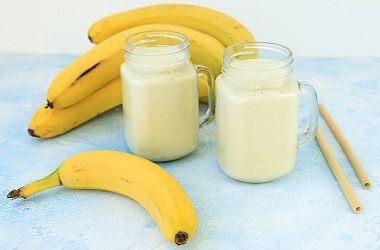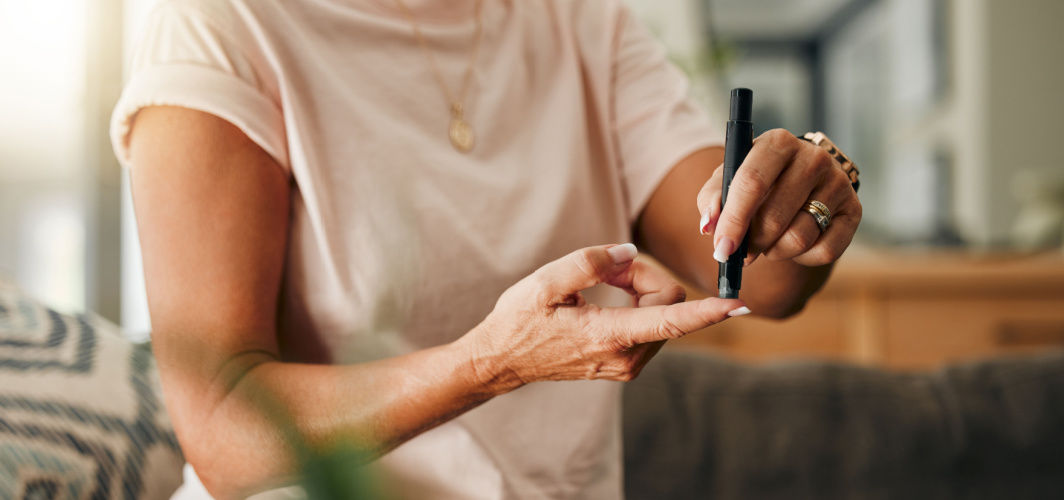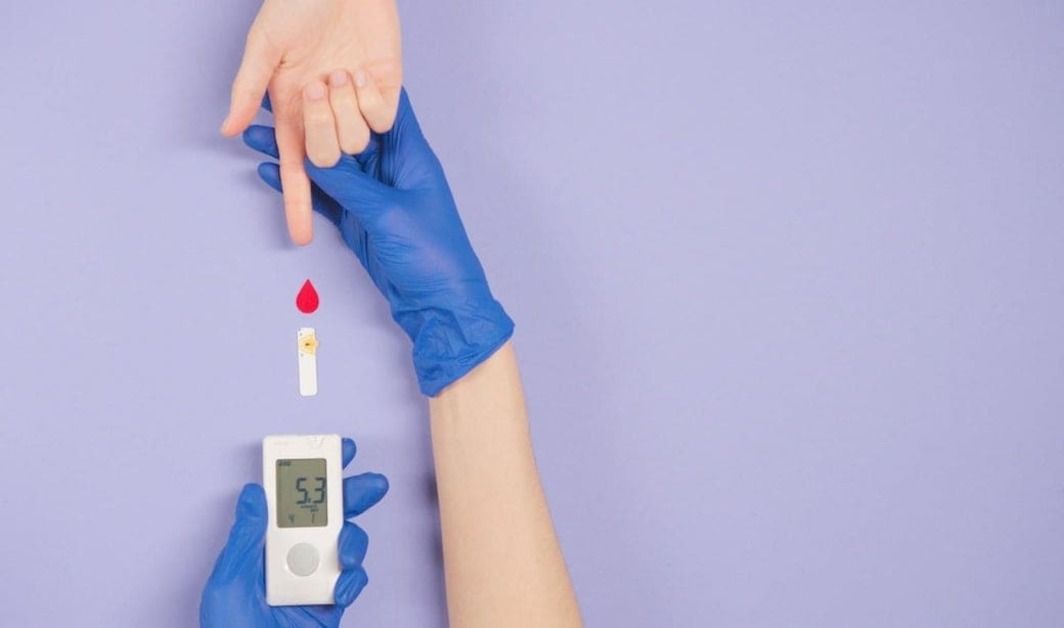Diabetes Management
Can Diabetics Eat Bananas?
5 min read
By Apollo 24|7, Published on - 26 December 2022, Updated on - 07 August 2024
Share this article
0
0 like

Sugar moderation is the first thing advised to all diabetic patients. This is simply because while sugar easily gets converted into energy in a healthy body, the conversion becomes a problem in a diabetic body.
With the pancreas making only little to no insulin in the system and the body having a general resistance towards insulin, the sugar remains stagnant in the bloodstream and risks health hazards in case of a sudden spike through careless eating.
However, at the base, almost all kinds of foods contain naturally occurring salt and sugar. Even the healthiest fruits and vegetables contain some form of sweetness. Hence, the question, “Can diabetics eat bananas?” or “Can diabetics eat mangoes?” or “Can a diabetic eat sweet fruits?” and more.
This blog discusses the natural sugar within bananas and other fruits, their effect on the diabetic body, and whether you can eat them or not.

Does Banana Increase Blood Sugar?
Yes, but not drastically. This is primarily because of 2 reasons:
1. Types of sugar
While a banana is sweet, it has a different form of sugar than the one found in refined foods. This form (fructose) does not require insulin to be absorbed and therefore has a low impact on blood glucose levels. In fact studies quote, fructose causes lower postprandial glucose (after a meal) and insulin resistance than most other glucose sources.
2. Glycemic Index
Glycemic index is a marker of how quickly or slowly the food converts to glucose in your body. Since bananas are not just plain sugar, but also have high fibre in them, they digest slower than other forms of sugar. Therefore, unless your blood sugar is already high at an alarming point, bananas are largely safe for you with a GI score of only 42- 51.
How Many Bananas Can A Diabetic Eat A Day?
When you talk about bananas, a diabetic patient needs to consider three parameters: ripeness, size, and food pairing due to their fructose levels.
- Ripeness The riper the banana, the higher the sugar. The greener the banana, the lesser the sugar. Therefore, while ripe bananas are best left avoided, eating a slightly unripe banana is completely safe for a day. In fact, unripe bananas also contain resistant starch, a form of carbohydrate that is not digested in the small intestine. Instead, it ferments in the large intestine, feeds good gut flora, balances blood sugar levels and helps in long-term blood sugar control.
💡 Did You Know?
In people with metabolic syndrome, resistant starch consumption improves insulin sensitivity.
- Size: The larger the banana, the higher the fructose level. As a result, consume only a small or medium-sized banana, especially if it is yellow. Also, if your blood sugar is high, try to divide it into smaller portions spread over the day rather than all at once.
💡 Did You Know?
1 raw banana (125g) contains (1.37g) in protein, carbohydrates (28.8g), and sugars (15.4g)
- Pairing: Since the banana is sweet, you can pair it with either healthy fats or protein to balance it out. For example, pair it with nuts, seeds, almond butter, or peanut butter. This can lower blood sugar levels while improving flavour. Or, you can also mix it with Greek yoghurt, which is high in protein.
Final Verdict: Is Banana Good For Diabetes?
Yes, bananas are good for diabetes. They are a healthy alternative to sugar and have a low glycemic index. Unless your resting sugar is extremely high, you can definitely have a banana every day.
Typically, opt for slightly green or unripe bananas. But in case you are eating yellow ones, make sure they are fresh, only small to medium in size, and that you do not consume them all at once.
Also, note that once they begin to brown, their sugar content increases. In such a case, they are best left avoided.
In case you want to make a smoothie, use a small banana and whole milk alternatives like oat milk to avoid raising your blood glucose levels. Why? Because whole milk contains another type of sugar known as lactose. And as always, try to avoid adding any additional sugar!
To know if your blood sugar levels are under control, Book Apollo's Diabetes Panel Test
Diabetics Diet: Fruits to Avoid and Eat?
When it comes to a diabetic diet, always check the glycemic index, or GI score, of a fruit. A low GI score ranges from 1 to 55. A high GI score is one of 70 or greater. To get a better understanding, look at the table below.
Fruits | GI Scores |
Papaya | 58 |
Pineapple | 59 |
Cantaloupe | 65 |
Watermelon | 76 |
Grapes | 90 |
The above fruits are best left avoided since they have a higher GI score. However, if you want to eat them, you can do so in moderation. Snap a screenshot of this table so you don't forget.
Fruits | GI Scores |
Pear | 20 |
Apple | 36 |
Dates | 43 |
Orange | 46 |
Strawberries | 49 |
Mango | 51 |
These low-GI fruits shown in the table can be eaten raw or fresh. And, once again, consume them in moderation.
💡 Did You Know?
Citrus and berries as superfoods for diabetics
Final Note
Bananas are a low-cost, widely available, and nutrient-dense fruit. And, as explained previously, diabetics should consume them in moderation.
Do you want to learn more about a diabetes-friendly diet? What should you consume and what should you avoid? Speak with one of our diabetologists today!
You can also try the Apollo 24|7 Diabetes Self-Management Tool to log your sugar values, track patterns, know all about food nutrition and more.
Medically Reviewed by Dr Dhanunjay Reddy B
Diabetes Management
Consult Top Diabetologists
View AllLeave Comment
Recommended for you

Diabetes Management
How to Manage Diabetes as You Age?
Contrary to common belief, diabetes doesn't inevitably worsen with age. Successful management hinges on proactive lifestyle choices, medication adherence, and regular monitoring. Factors like diet, exercise, and overall health significantly influence the course of diabetes. Embracing a holistic approach, including adapted exercise and regular health check-ups, allows individuals to age healthily with diabetes, debunking myths and promoting a fulfilling life.

Diabetes Management
Why is it Important to Maintain Blood Sugar within Range?
A blood sugar level of 98 mg/dL falls within the normal range, signifying effective glucose regulation and metabolic stability. Regular monitoring and healthcare provider consultation offer a comprehensive understanding of metabolic health. While a consistent reading of 98 mg/dL is generally positive, individual health factors should be considered for accurate assessment.
.jpg?tr=q-80)
Diabetes Management
Sick Day Guidelines For Diabetics
Managing diabetes during illness can be challenging, but with the right steps, you can keep your blood sugar levels under control. Regular monitoring of blood glucose, staying hydrated, continuing medications, and being aware of complications like diabetic ketoacidosis are key. Remember, every individual is unique and so is their journey with diabetes. Thus, personalised support from a programme like Apollo Super 6 can be highly beneficial.
Subscribe
Sign up for our free Health Library Daily Newsletter
Get doctor-approved health tips, news, and more.
Visual Stories

8 Fruits That are Incredibly Healthy for Diabetes
Tap to continue exploring
Recommended for you

Diabetes Management
How to Manage Diabetes as You Age?
Contrary to common belief, diabetes doesn't inevitably worsen with age. Successful management hinges on proactive lifestyle choices, medication adherence, and regular monitoring. Factors like diet, exercise, and overall health significantly influence the course of diabetes. Embracing a holistic approach, including adapted exercise and regular health check-ups, allows individuals to age healthily with diabetes, debunking myths and promoting a fulfilling life.

Diabetes Management
Why is it Important to Maintain Blood Sugar within Range?
A blood sugar level of 98 mg/dL falls within the normal range, signifying effective glucose regulation and metabolic stability. Regular monitoring and healthcare provider consultation offer a comprehensive understanding of metabolic health. While a consistent reading of 98 mg/dL is generally positive, individual health factors should be considered for accurate assessment.
.jpg?tr=q-80)
Diabetes Management
Sick Day Guidelines For Diabetics
Managing diabetes during illness can be challenging, but with the right steps, you can keep your blood sugar levels under control. Regular monitoring of blood glucose, staying hydrated, continuing medications, and being aware of complications like diabetic ketoacidosis are key. Remember, every individual is unique and so is their journey with diabetes. Thus, personalised support from a programme like Apollo Super 6 can be highly beneficial.


